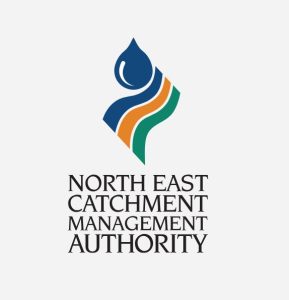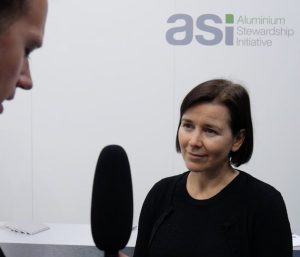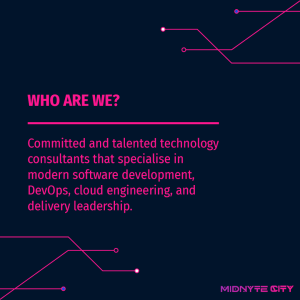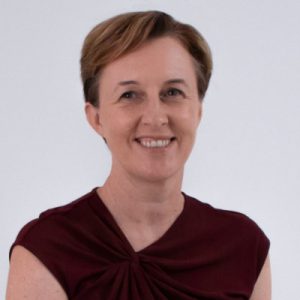Thinking a bit bigger, tapping into Accelerator ‘goldmines’
“I’m curious in life,” was Dr Sarah Anderson’s response to why she’s always tackling new opportunities and challenges.
She has always been busy – the Churchill Fellowship, Williamstown Community Leadership Program and the Kokoda Trail in 1998. Three children, three degrees, three boards.
When her oldest was just a one-year-old, Sarah signed up to do her PhD (Ergonomics and Human Factors, 2010-2017). Then in lockdown in 2021 – while home-schooling a six, nine and 12-year-old – she signed up to her first round of Take on Board Accelerator.
“This is my third time doing Accelerator,” she said with a laugh and a shake of the head.
“I don’t have a lot of spare time. So, I don’t stick with something where I don’t get something back. I learn from other people. There are people in Accelerator who have had 35 years of board experience – they’re goldmines.”
Each round was different. “I got something different out of it each time. Learnt from the different conundrums.”
Key outcomes
- Learning how to ask good questions
- Building knowledge and expertise around succession planning
- Listening and learning from other’s experience and layers of expertise
What you get with Accelerator is a group of people who you can bring a problem to in a safe place. A group of friends where you can be honest. And it stays in the group.”
Dr Sarah Anderson
Chair, Australia Orthotic and Prosthetic Association, and Disability Sport and Recreation
Good values established early
Sarah grew up in Melbourne in a values-focused family environment that obviously influenced the three Anderson siblings’ life and career choices. Her older sister works for the Kimberley Schools Project, which coaches and trains school leaders and teachers in the Kimberley region. Her younger brother is a pilot with the Royal Flying Doctor Service.
“As a kid I loved sport – any sport,” Sarah said. “Ballet, rowing, etc. Rowing suited me because it’s very regimented, because there’s a crew.”
Sarah’s focus on the health and disability sector started early. Following a bachelor’s degree in prosthetics and orthotics at LaTrobe University (2000-2002) she completed a master’s degree in public health at James Cook University (2004-2007).
Then after 18 months work for Novita – which supports kids, young people and adults living with disability – Sarah took off to Thailand in 2006 to lecture in orthotics and prosthetics at Mahidol University.
She loved lecturing. “I’m reasonably good at thinking on my feet. Marking is the one thing I hated. But stand me up in front of a room full of 500 people and I’m happy.”
Her 17-year career in academia really kicked off when she returned to Australia to take on what was initially a six-month lecturing contract with LaTrobe University’s prosthetics and orthotics department.
“I just stayed,” she said. “I really loved the students. I’m still in touch with many.”
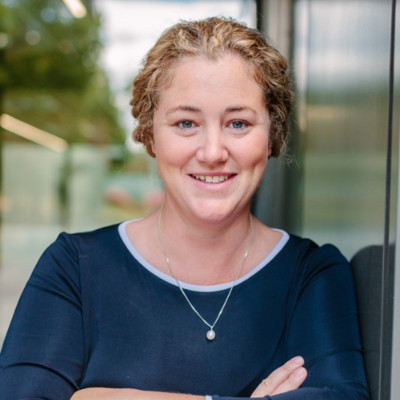
Accelerator rounds
2021, 2022, 2023
About Sarah
Sarah is a highly experienced project manager, educator, researcher and board director in the health and disability sector.
Board roles
- Chair, Australia Orthotic and Prosthetic Association (November 2020 – now)
- Chair, Disability Sport and Recreation (November 2019 – now)
- Non-executive director, Scope (Australia) (August 2021 – now)
Board qualifications
- AICD’s Company Directors Course, 2022
- Accelerator, 2021, 2022, 2023
Help to see how skills are transfereable
The results of a 360 performance review in 2019 while at LaTrobe University not only introduced her to the first of many life-changing mentors, but led to her first role outside orthotics and prosthetics.
“I scored myself so badly,” she said of the 360 review. “Chloe Hall played a pivotal role in helping me to be able to see how my skills were transferrable to other industries. She’s no longer at LaTrobe, but we’re still in contact. She’s my fallback – a sounding board. She knows my background.
“She helped me take the blinkers off and do a bit of self-preservation. I was a champion at not saying ‘no’. Now I say ‘yes’ with purpose, and not say ‘yes’ because of guilt.”
The importance of mentors
These days Sarah has a number of mentors to call on for advice.
“She has been a very generous mentor for a long time,” Sarah said of Tricia Malowney, an accomplished gender and disability specialist who is chief accessibility advocate for the Victorian government’s Department of Transport and Planning.
Tricia was on the interview panel for Leadership Victoria’s Williamsons Community Leadership Course, which Sarah completed in 2019.
“Knowledgeable, empathetic and professional,” is how Tricia describes Sarah, also stating that she’s “able to understand issues as an academic, as a service provider and an end-user”.
Sarah now has her board go-tos. “From a boards perspective, there are a couple of people I’ll bounce ideas off,” she said, referring to Dr Nadine White and Marcell Judkins. “Questions like ‘how do I approach this issue differently next time?’. I don’t think there’s been a single time they’ve said that they’re too busy to help out.”
Falling into boards
Sarah was just 26 years old when she was appointed to her first board in 2008 – the International Society for Prosthetics and Orthotics Australian National Member.
“I fell into boards,” she said. “I was asked and said ‘yes’. I knew the board secretary who was leaving. My biggest mistake was not asking enough questions beforehand. I was told it’d take a couple of hours a month.”
A result of mentor Chloe Hall’s ‘transferable skills’ advice, Sarah applied for a paid position on the Yea and District Memorial Hospital board in 2017.
“I wanted something outside of university to broaden my knowledge and experience with different people,” she said. “It was my first board outside of prosthetics. I was ready to take that next step.”
Three years of Accelerator 'goldmines'
Sarah’s boardroom knowledge has come a long way since she was that 26-year-old that fell into her first board role. More than a decade later, she now chairs the Australia Orthotic and Prosthetic Association and admits to being “reasonable” at reading a profit and loss (P&L) statement.
By the time Sarah had enrolled in her first round of Take on Board Accelerator, she already had 13 years of board experience under her belt but felt she “wanted to make changes, but didn’t know how”.
“So, Tricia said ‘give it (Accelerator) a go’,” she said
With Accelerator she found “a group that all thought differently, but have the common aim to make things better”. Always a good listener, Sarah also learnt the power of asking good questions in the boardroom.
‘Succession planning’ turned out to be her most discussed topic in all three rounds.
“I’m on three boards at the moment and all three recruited new CEO’s last year,” she said. “One board is larger and better resourced and can use external resources for recruitment. The other two boards are smaller, so it’s a little harder. The board does the recruitment.”
All three boards now have solid succession plans in place. She loves dealing with the planning and “the strategic bit of boards”, looking at the bigger picture. “My day-to-day is numbers and stats,” she said of her research analytics and insights role at Australia Health Practitioner Regulation Agency (APHRA).
A call for board diversity
Her ‘aha moment’ after three years of Accelerator and 15 years of board experience?
“A sense that we’re all experts,” she replied. “That everyone’s experience adds a layer of expertise, if you listen well enough.”
Despite her long 15-year board career, she’s still “often the youngest person (at the table), and the only person with disability”.
She would like to see more people with disability apply for board positions, stressing that the AICD Company Directors Course isn’t a ‘must have’, that lived experience adds that important layer of expertise in the boardroom.
“It’s been really hard to recruit a person with disability to the board,” she said of the efforts to recruit for the Disability Sport and Recreation board. “It’s hard to advertise to people with disability because disability is so diverse.”
Recognising that “having a disability takes more time”, she says that the pandemic has made board meetings “more hybrid and accessibility easier”. Zoom meetings. Meeting minutes are emailed through.
“There are a lot of opportunities out there,” is the advice she gives. “Ideally start with a big, well-resourced board first. Or try a committee. Think a bit bigger – you can always come back a step.”
